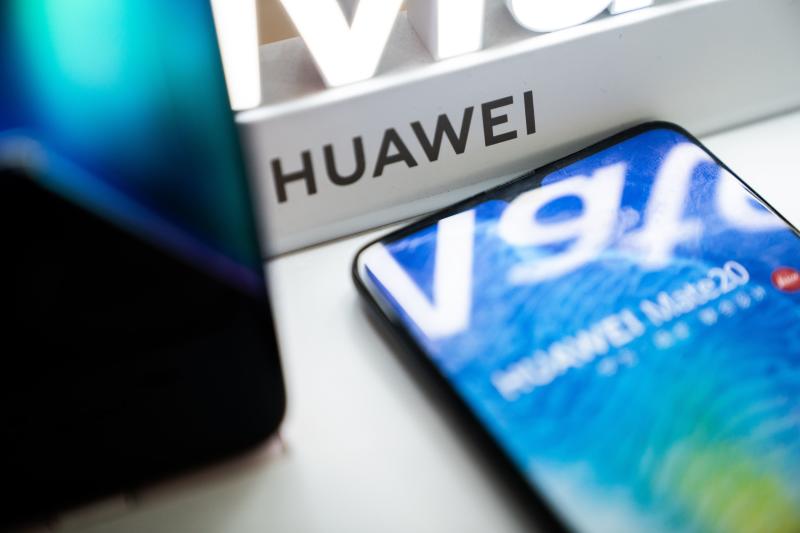Huawei on the ropes as Google pulls the plug, citing US supply ban
Sign up now: Get ST's newsletters delivered to your inbox

Google has barred phone maker Huawei from some updates to the Android operating system.
PHOTO: AFP
WASHINGTON - Wall Street stocks fell in early trading as the United States government restrictions on Huawei hit American technology companies.
The Dow Jones Industrial Average was down 0.4 per cent and the broad-based S&P 500 shed 0.6 per cent about 15 minutes after markets opened on Monday (May 20).
Google parent Alphabet lost 2.3 per cent, while shares of chip companies Qualcomm and Intel also retreated.
Huawei, dealt a major blow by a US ban on suppliers from selling it parts and services without a licence from the Commerce Department, moved to assure customers it would continue to support existing smartphones and tablets.
This came from a company spokesman after Google said it would comply with an order barring the Chinese company from getting updates to its Android operating system.
"We have made substantial contributions to the development and growth of Android around the world," the spokesman said on Monday. "Huawei will continue to provide security updates and after-sales services to all existing Huawei and Honor smartphone and tablet products, covering those that have been sold and that are still in stock globally."
Google also said services like Google Play and Google Play Protect would keep functioning on existing Huawei devices.
But several American tech giants joined Google in following the government ban. Intel, Qualcomm, Broadcom, and Xilinx all told employees that they would not supply Huawei, Bloomberg News reported, citing people familiar with the companies' actions.
Headquartered in Shenzhen, Guangdong, Huawei is the world's second largest smartphone maker, selling nearly 203 million phones last year.
The US administration, which essentially sees the company as engaging in espionage in the US on behalf of China's government, has been tightening the screws on the firm and took two actions against it last week.
Huawei was the unspecified target of the first, an executive order banning US telecommunications firms from installing foreign-made equipment that could prove a threat to national security.
The US also added Huawei and its 68 affiliates to the Commerce Department's Entity List, banning it from doing business with US companies, and calling into question its ability to continue manufacturing.
Separately, the US is pursuing extradition proceedings in Canada against Huawei's chief financial officer Meng Wanzhou, daughter of the company's founder Ren Zhengfei. Meng is under house arrest in Vancouver and fighting the charge that she conspired to defraud global banks about Huawei's relationship with a company in Iran.
The US' latest moves cast a cloud over a potential meeting between President Donald Trump and China's President Xi Jinping in Japan in late June, which is seen as a critical opportunity for the two giant economies to reach a deal and wind back a damaging trade war.
"At this timing, the latest moves against Huawei are interpreted by many as additional maximum pressure to force China to sign a trade deal desired by the US," Ms Yun Sun, director of the China Programme at the Stimson Centre told The Straits Times.
President Trump has considerably raised the stakes for the June meeting. On the other hand, nationalist sentiment in China is sure to rise further, said Eurasia Group founder Ian Bremmer.
There remains some uncertainty as to whether the US will issue temporary licences or exemptions for American suppliers to Huawei. Last year Mr Trump threatened another Chinese telecom company, ZTE, but relented. With Huawei though, there is more at stake, analysts say.
If the US does not issue a general licence, it would be a major blow to the stability of one of China's most important companies, the Eurasia Group said.
"Even a less severe scenario, in which US companies are covered under a temporary licence that could be revoked at any time, would make Beijing less likely to yield on some of the core technology issues at the heart of the trade dispute."
Huawei "is heavily dependent on US semiconductor products and would be seriously crippled without supply of key US components", Mr Ryan Koontz, an analyst with Rosenblatt Securities Inc told Bloomberg News.
"The extreme scenario of Huawei's telecom network unit failing would set China back many years and such a failure would have massive global telecom market implications."


